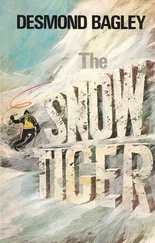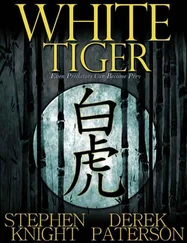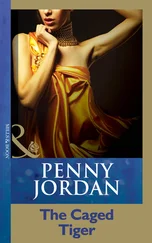"No, sir…it's a skin disease. I've got it here too, behind my ear-see-all those pink spots?"
He came close, filling my nostrils with his perfume. Bending my ear with a finger, gently, he looked.
"My. I never noticed. I sit behind you every day and I never-"
"A lot of people have this disease, sir. A lot of poor people."
"Really. I haven't noticed. Can you get it treated?"
"No, sir. The diseases of the poor can never get treated. My father had TB and it killed him."
"It's the twenty-first century, Balram. Anything can be treated. You go to the hospital and get it treated. Send me the bill, I'll pay it."
"Thank you, sir," I said. "Sir…do you want me to take you somewhere in the City?"
He opened his lips and then closed them without making any noise. He did this a couple of times, and then he said, "My way of living is all wrong, Balram. I know it, but I don't have the courage to change it. I just don't have…the balls. "
"Don't think so much about it, sir. And sir, let's go upstairs, I beg you. This is not a place for a man of quality like yourself."
"I let people exploit me, Balram. I've never done what I've wanted, my whole life. I…"
His head sagged; his whole body looked tired and worn.
"You should eat something, sir," I said. "You look tired."
He smiled-a big, trusting baby's smile.
"You're always thinking of me, Balram. Yes, I want to eat. But I don't want to go to another hotel, Balram. I'm sick of hotels. Take me to the kind of place you go to eat, Balram."
"Sir?"
"I'm sick of the food I eat, Balram. I'm sick of the life I lead. We rich people, we've lost our way, Balram. I want to be a simple man like you, Balram."
"Yes, sir."
We walked outside, and I led him across the road and into a tea shop.
"Order for us, Balram. Order the commoners' food."
I ordered okra, cauliflower, radish, spinach, and daal. Enough to feed a whole family, or one rich man.
He ate and burped and ate some more.
"This food is fantastic. And just twenty-five rupees! You people eat so well!"
When he was done, I ordered him a lassi, and when he took the first sip, he smiled. "I like eating your kind of food!"
I smiled and thought, I like eating your kind of food too.
* * *
"The divorce papers will come through soon. That's what the lawyer said."
"All right."
"Should we start looking already?"
"For another lawyer?"
"No. For another girl."
"It's too early, Mukesh. It's been just three months since she left."
I had driven Mr. Ashok to the train station. The Mongoose had come to town again, from Dhanbad. Now I was driving both of them back to the apartment.
"All right. Take your time. But you must remarry. If you stay a divorced man, people won't respect you. They won't respect us. It's the way our society works. Listen to me. Last time you didn't listen, when you married a girl from outside our caste, our religion-you even refused to take dowry from her parents. This time, we'll pick the girl."
I heard nothing; I could tell that Mr. Ashok was clenching his teeth.
"I can see you're getting worked up," the Mongoose said. "We'll talk about it later. For now, take this." He handed his brother a red bag that he had brought with him from Dhanbad.
Mr. Ashok clicked open the bag and peered inside-and at once the Mongoose slammed the bag shut.
"Are you crazy? Don't open that here in the car. It's for Mukeshan. The fat man. The assistant. You know him, don't you?"
"Yes, I know him." Mr. Ashok shrugged. "Didn't we already pay those bastards off?"
"The minister wants more. It's election time. Every time there's elections, we hand out cash. Usually to both sides, but this time the government is going to win for sure. The opposition is in a total mess. So we just have to pay off the government, which is good for us. I'll come with you the first time, but it's a lot of money, and you may have to go a second and third time too. And then there are a couple of bureaucrats we have to grease. Get it?"
"It seems like this is all I get to do in Delhi. Take money out of banks and bribe people. Is this what I came back to India for?"
"Don't be sarcastic. And remember, ask for the bag back each time. It's a good bag, Italian-made. No need to give them any additional gifts. Understand? Oh, hell. Not another fucking traffic jam."
"Balram, play Sting again. It's the best music for a traffic jam."
"This driver knows who Sting is?"
"Sure, he knows it's my favorite CD. Show us the Sting CD, Balram. See-see-he knows Sting!"
I put the CD into the player.
Ten minutes passed, and the cars had not moved an inch. I replaced Sting with Enya; I replaced Enya with Eminem. Vendors came to the car with baskets of oranges, or strawberries in plastic cases, or newspapers, or novels in English. The beggars were on the attack too. One beggar was carrying another on his shoulders and going from car to car; the fellow on his shoulders had no legs below his knees. They went together from car to car, the fellow without the legs moaning and groaning and the other fellow tapping or scratching on the windows of the car.
Without thinking much about it, I cracked open the egg.
Rolling down the glass, I held out a rupee-the fellow with the deformed legs took it and saluted me; I rolled the window up and resealed the egg.
The talking in the backseat stopped at once.
"Who the hell told you to do that?"
"Sorry, sir," I said.
"Why the hell did you give that beggar a rupee? What cheek! Turn the music off."
They really gave it to me that evening. Though their talk was normally in a mix of Hindi and English, the two brothers began speaking in chaste Hindi-entirely for my benefit.
"Don't we give money each time we go to the temple?" the elder thug said. "We donate every year to the cancer institute. I buy that card that the schoolchildren come around selling."
"The other day I was speaking to our accountant and he was saying, 'Sir, you have no money in your bank. It's all gone.' Do you know how high the taxes are in this country?" the younger thug said. "If we gave any money, what would we have to eat?"
That was when it struck me that there really was no difference between the two of them. They were both their father's seed.
For the rest of the drive home, the Mongoose pointedly kept his eyes on the rearview mirror. He looked as if he had smelled something funny.
When we reached Buckingham B, he said, "Come upstairs, Balram."
"Yes, sir."
We stood side by side in the elevator. When he opened the door of the apartment, he pointed to the floor. "Make yourself comfortable."
I squatted below the photo of Cuddles and Puddles and put my hands between my knees. He sat down on a chair, and rested his face in his palm, and just stared at me.
His brow was furrowed. I could see a thought forming in his mind.
He got up from his chair, walked over to where I was crouched, and got down on one knee. He sniffed the air.
"Your breath smells of aniseed."
"Yes, sir."
"People chew that to hide the alcohol on their breath. Have you been drinking?"
"No, sir. My caste, we're teetotalers."
He kept sniffing, coming closer all the time.
I took in a big breath; held it in the pit of my belly; then I forced it out, in a belch, right to his face.
"That's disgusting, Balram," he said with a look of horror. He stood up and took two steps back.
"Sorry, sir."
"Get out!"
I came out sweating.
The next day, I drove him and Mr. Ashok to some minister's or bureaucrat's house in New Delhi; they went out with the red bag. Afterwards, I took them to a hotel, where they had lunch-I gave the hotel staff instructions: no potatoes in the food-then drove the Mongoose to the railway station.
Читать дальше












